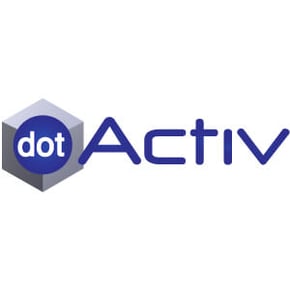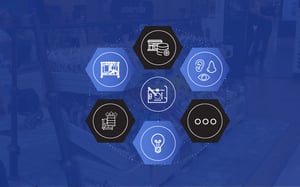Good product knowledge. For any retailer, it’s the foundation on which your products are sold. Fail to spend enough time on learning about your products and you’ll struggle to sell them. There’s also the fact that you can ruin any relationships you’ve built up with your customers.
Don’t think so? Imagine trying to sell a product when you know nothing about it. That’s just not fair. It’s not fair to your staff. It’s not fair to your store. But most importantly, it’s not fair to your customers.
Why is product knowledge so important?
There are many reasons why product knowledge is so important. And why it’s crucial to the future success of your stores. We’ve partly explained them already. But there is more to it.
Understanding and knowing everything this is to know about your products is only one aspect of selling a product. The other side is what you can offer as a result of having the proper product knowledge. What is that? It’s simple: you can offer superior in-store customer service. We touched briefly on this in our article on ways in which you can put your shoppers first.
But let’s put it in a practical illustration to explain further. Say you have a pharmacy and a customer walks in looking for a product. Let’s say they’re suffering from hayfever and they want a solution. But beyond a few specifications, they don’t know where to start. That’s where your salesperson comes in. This customer is relying on your product knowledge to find the right solution to their problem and you can do just that.
As a result of having the right knowledge, you’re ensuring a pleasant shopping experience for your customer. More than that, you’re providing them with motivation to return, and even become loyal customers. They know that the next time they have a medical issue, regardless of what that is, your pharmacy is the one to visit.
How can you improve your product knowledge?
The path your staff needs to take to build up their knowledge around the products your stores stock comes down to a number of steps. Unlike the different elements that make up store operations success where it's not necessary to follow step-by-step, it could be argued that each step here builds to the next one.
Of course, it could also be argued that so long as you have the first step in place, the others can be arranged as you see fit. It’s also important to note that the below are not the only ways in which you can improve your product knowledge.
1. Make product training compulsory for all staff
When it comes to product training and deciding who should get it, you mustn’t look at it from a single perspective and only assign it to certain employees. In order words, only those staff who deal with your customers directly. That’s narrow thinking. And narrow thinking doesn’t have a place in any retail business. Especially when it comes to delivering superior customer service.
Instead, you need to consider each and every person who works in your stores. And it should be compulsory. Why? It’s simple: by educating everyone about the products you sell, you’re creating a better-informed staff who can fill in for anyone at a moment's notice.
For example, a customer walks into your store and all the salespeople are busy. Within a few minutes, that customer will get fed up and leave. Potential sale lost right there. But what if another staff member is able to step in and offer similar, if not the same level of service? With the right product knowledge, you’re creating stronger and more effective stores.
2. Encourage your staff to partake in role-playing exercises
Once you’ve gone through the process of providing everyone with training, it’s important that you get them to put it to practice. After all, it’s all good and well knowing the theory but can your staff use their knowledge practically? Have they understood and internalised the knowledge?
To test that out, you have role-playing.
By role-playing, we refer to any situation where you can get your staff to act like customers to ask questions about a particular product line. Remember, this is about offering customer service that can’t be found anywhere else. And that can’t be done by just focusing on the typical customer questions. Rather think outside of the box. In so doing, you can test your employees to the point that they can talk about your products without second-guessing themselves.
The bonus of getting your staff to act like customers is that they’ll also begin to think like them while on the sales floor. That means that they can anticipate any questions or reservations, making them a more effective salesperson.
If you can provide customer service that is so good people will choose to come into your store rather than buy the product online, you know you’re doing something right.
3. Allow your staff to use the product in their spare time
Role-playing acts as an important part of getting to know your product, but there is another way to build knowledge: allow your staff to use the products in their spare time.
While such a practice might work better for some retailers - those who sell electronics or hardware are just two off-hand examples - that doesn’t mean other retailers can’t do this. There is the well-known staff discount or you could give free samples. You simply need to adapt to your circumstances.
Why? Let’s put it this way. How will your staff ever be able to successfully sell a product if they’ve never had a first-hand experience with it? More importantly, how can you expect your customers to trust your salesperson to give them the right advice? It’s as Albert Einstein once said: “The only source of knowledge is experience.”
And it makes business sense.
By allowing your staff to get a feel for your product, you’re giving them the opportunity to build their confidence around selling it. Another way of describing it is to explain that you’re taking the role-playing aspect of product knowledge to a whole new level.
For example, a customer comes into your store and says they are interested in buying a particular product. By allowing your staff to have tested it out before placing it in your store, they’re ready to answer any questions. They can even sell it by relaying a first-hand experience with the product.
What better way to sell a product than to sell it by having your salespeople retelling anecdotes about how they’ve personally used it. That builds trust. And that sells products.


